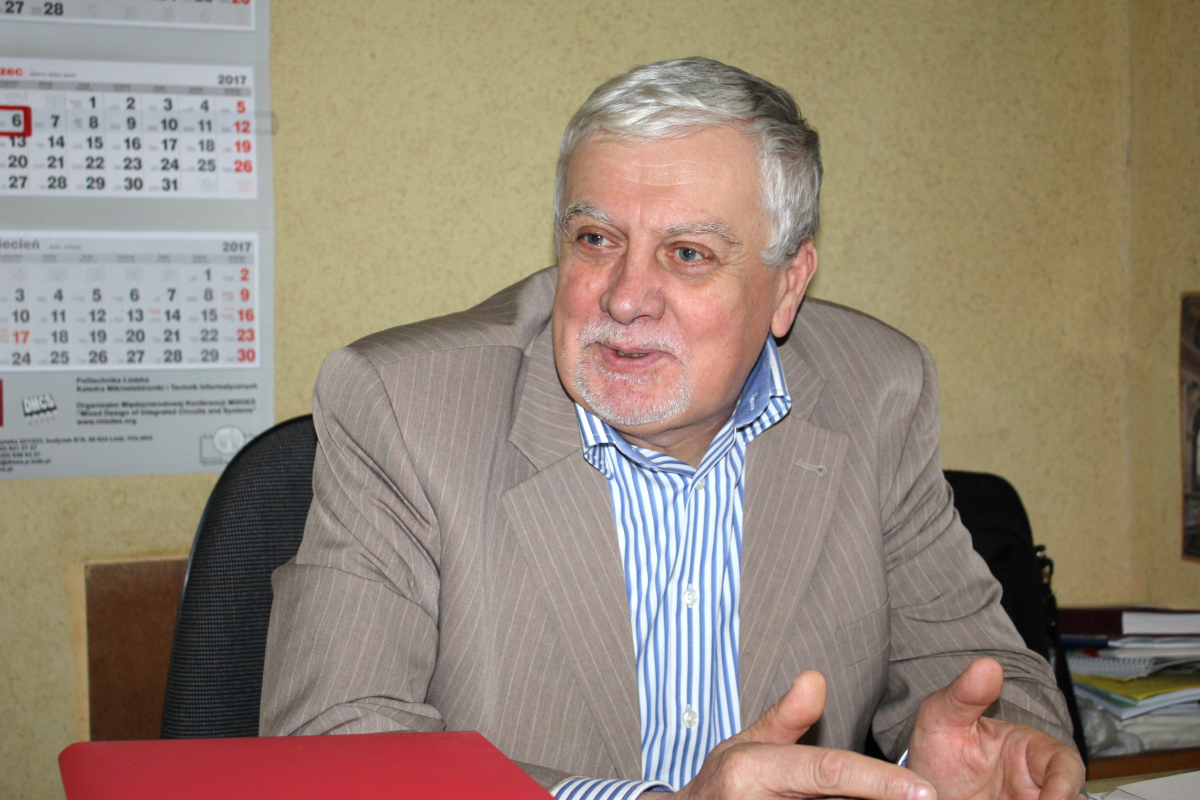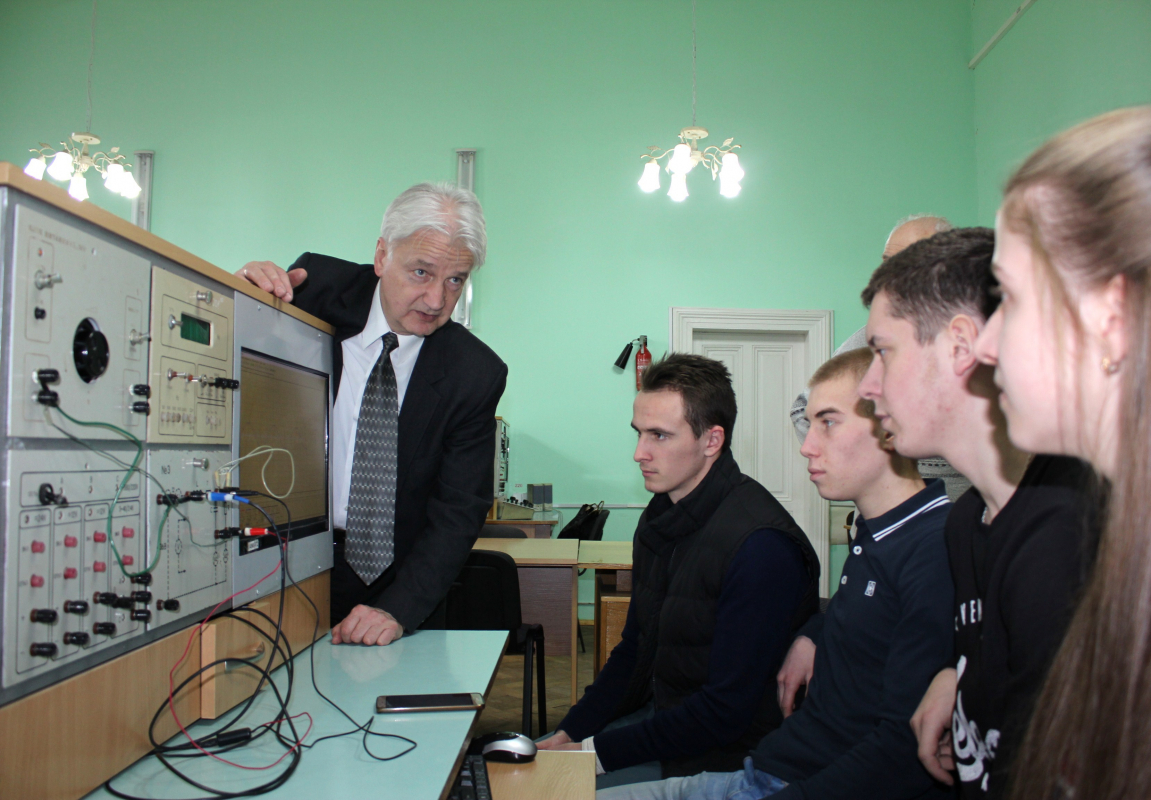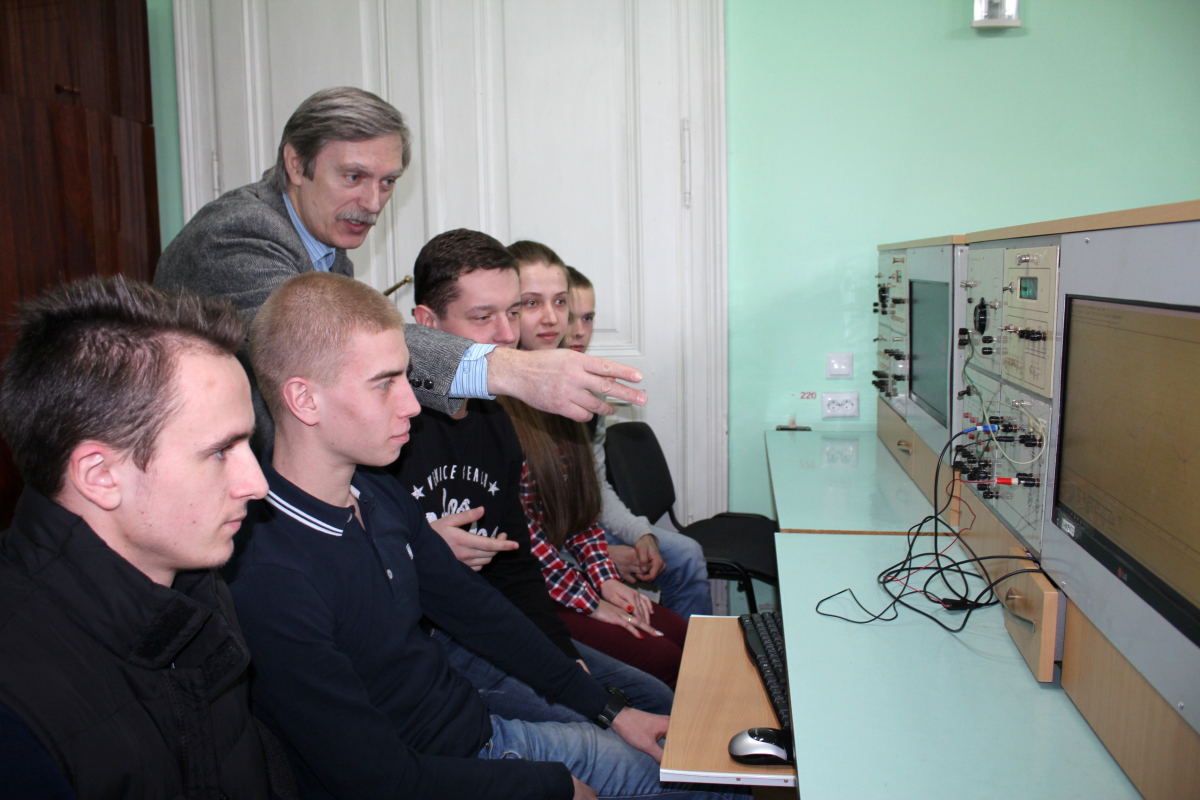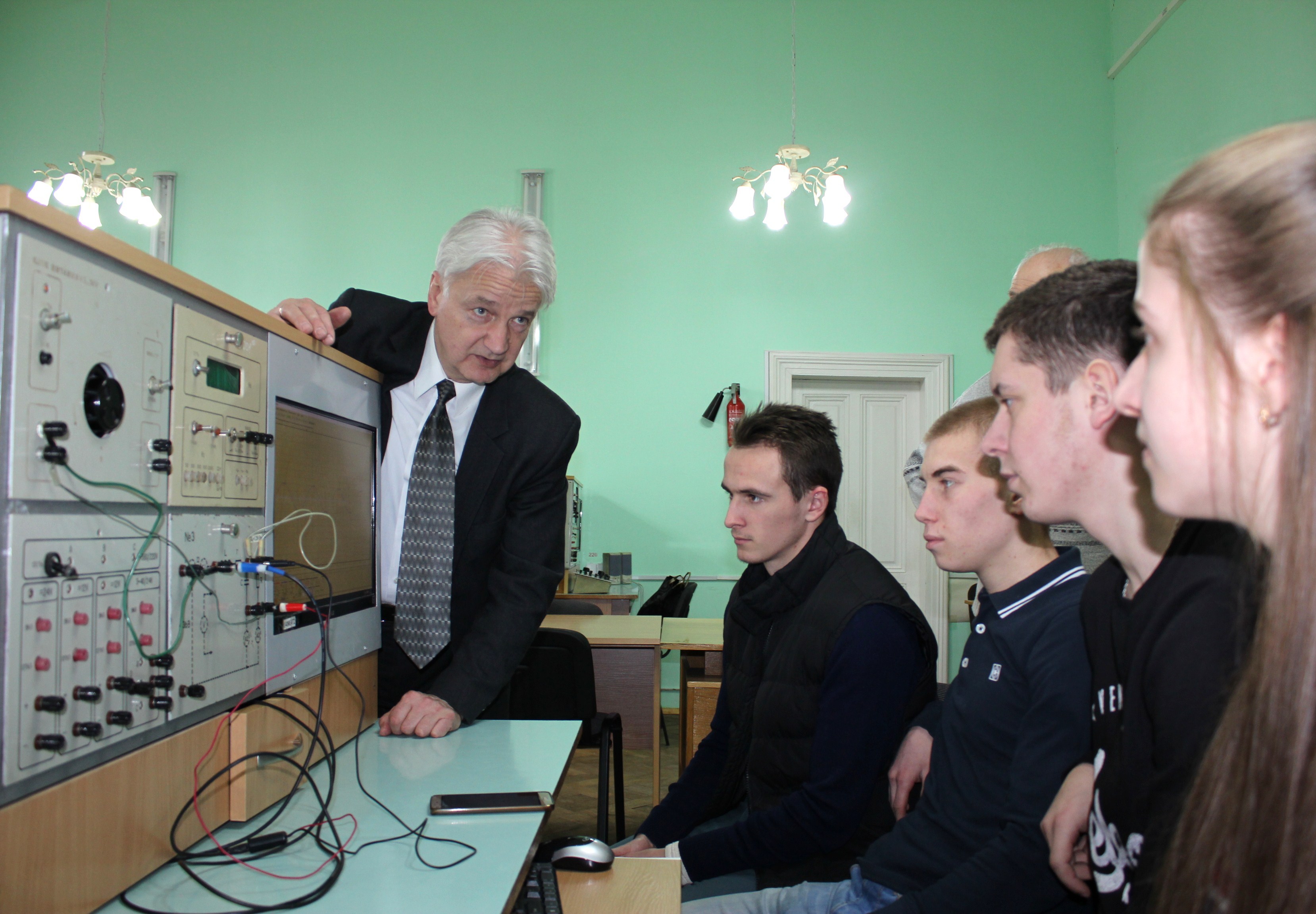Lviv Polytechnic researchers’ development has been recommended to be awarded State prize of Ukraine in education. It is a computerized educational and methodological complex «Electrical Engineering and Electronics». It happened during the recent University Academic Board meeting, where it was decided unanimously.
Its team of authors includes the following academics of Lviv Polytechnic:
- Yuriy Yaroslavovych Bobalo – Sc.D., Professor, University Rector;
- Orest Yevhenovych Hamola – PhD, Associate Professor of the Department of Theoretical and General Electrical Engineering;
- Bohdan Andriyovych Mandziy – Sc.D., Professor of the Department of Theoretical Radio Engineering and Radio Measurement;
- Petro Hryhorovych Stahiv – Sc.D., Professor, Head of the Department of Theoretical and General Electrical Engineering;
- Nataliya Bohdanivna Shahovska – Sc.D., Professor of the Department of Information Systems and Networks.
The team also includes Leonid Dmytrovych Pysarenko – Sc.D., Professor, Head of the Department of Electronic Devices and Appliances of the National Technical University of Ukraine «Kyiv Polytechnic Institute», and Yuriy Ivanovych Yakymenko – Sc.D., Professor, Fist Vice-Rector of the National Technical University of Ukraine «Kyiv Polytechnic Institute».
Since the educational and methodological complex «Electrical Engineering and Electronics» is located in the Institute of Power Engineering and Control Systems and is a component of the Department of Theoretical and General Electrical Engineering, which is headed by Professor Petro Stahiv, we asked him to tell us about this development.
– The point of our complex is that it combines different types of learning – lectures, laboratory sessions and practical classes. We teach a course «Fundamental Principles of Electrical Engineering and Electronics». It is one of the core disciplines. As a rule, it is taught to a big number of students. Taking into account modern development of IT and students’ great interest in them, we decided to use computers in the learning process as much as possible. When a student has read certain chapters in the textbook or listened to the lecture, he/she can check the level of his/her knowledge. The computer generates questions of various levels of complexity. The student answers these questions and sees the mark on the monitor. If the student does not know something, the computer gives a prompt, subtracting points at the same time. Moreover, the computer can make the student feel «embarrassed», recommend him/her to read a certain chapter, a certain page in this or that textbook in a certain subject or work on his/her mathematics.
All in all, the cycle of academic works on the topic of Electrical Engineering and Electronics includes three textbooks (one of them has been translated into Polish and published in Poland), a manual, a monograph, a self-learning information system recorded on a CD, 8 scientific works published in the last 5 years.This cycle contains priority results in developing innovative systems of learning and self-learning.
– When is this complex going to be implemented?
– The laboratory has been operating like this for three years. We had to do a lot of work to implement our ideas into «hardware», to combine mathematical modeling with a real experiment in computer technologies. Our complex enables every student to manage the ratio of time for classes and independent work at home with a laptop or a tablet, taking into account student’s individual needs and possibilities, to provide the balance between memorizing and development of critical thinking, to assess the level of the material learned. The originality of this complex lies in developing algorithm-program complexes for teaching and self-teaching Electrical Engineering disciplines.
We also talked about this to Professor Bohdan Mandziy. He told us about his contribution to this unique complex:
– Professor Petro Stahiv mentioned one textbook published in Poland. I wrote its chapters on the theory of signals and signals transformation electric circuits. Apart from this, there is also a chapter on circuits with distributed parameters. These are electric circuits, whose geometric size is much bigger or comparable with the signal wave length in there. We need to use a special mathematical apparatus for this. It refers mostly to cables along which signals are transmitted. It is important that students have an opportunity to model the electric circuit on the computer and then do the experiment and compare this modeling with the real experiment.
Program system for checking and assessing students’ knowledge has been developed by Professor Nataliya Shahovska. A number of tasks for students have been written by me. I have also contributed to filing the testing tasks and problems database, as well as reference material in Mathematics necessary for studying the theory of electric circuits. Together with Professors Y. Bobalo, P. Stahiv and N. Shahovska, we have written an article «The concept of creating e-textbooks for higher educational institutions» published in a theoretical and academic-methodological journal «Higher Education of Ukraine» and also in one of the prestigious Polish journals.
Professor Nataliya Shahovska told me about the specifics of the complex software:
– This computerized educational and methodological complex enables us to generate the parameters of the problems and their correct solution automatically. In comparison with other systems, which can be used for distance learning or self-learning, this complex enables us to generate questions not only in the form of tests or correlations, but in the form of problems, which is extremely important for learning technical disciplines, Electrical Engineering and Electronics in particular.
Journalists have to question everything. Finally, we asked Professor Petro Stahiv whether the team of authors had reinvented the wheel. There could be something similar in other higher educational institutions. We were not talking about a know-how…
– Don’t be afraid to use these words. It is a real know-how. I have been tracing this problem for a long been period of time, I have been reading publications in academic and methodological journals. We hope that our collective work will be appreciated by the Competition Committee of the Ministry of Education and Science of Ukraine.



